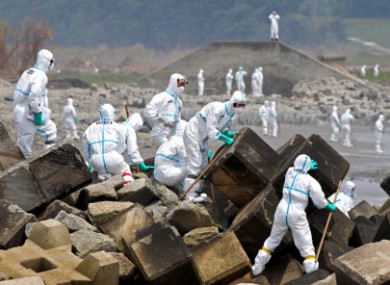Region: International
NEWSFLASH: Kochs Cave on Climate
Humans are causing climate change after all. Who knew?
The Kochs believe in climate change, so it seems. Greenwire reports that a Koch spokesman said: “Charles has said the climate is changing. So, the climate is changing . . . I think he’s also said, and we believe, that humans have a part in that. I think what the real question is … what …
Continue reading “NEWSFLASH: Kochs Cave on Climate”
CONTINUE READINGCreating An Exit Strategy for Our Use of Natural Gas
To meet long-term greenhouse gas reduction goals, all fossil fuels have to go, even natural gas.
Coal is the climate’s Public Enemy #1. The use of natural gas has helped to ensure that the coal problem has not become even worse. Without natural gas, we would use more coal for space heating and for many more industrial processes than is currently the practice. Without natural gas, our reliance on coal for …
Continue reading “Creating An Exit Strategy for Our Use of Natural Gas”
CONTINUE READINGFukushima + 5
What’s happened since then?
Five years ago today, Japan was hit by a huge earthquake and tsunami, resulting in the Fukushima reactor meltdowns. Where do things stand today? Here’s a quick wrap-up: Compensation. TEPCO, the utility operating the reactors, now estimates that it will pay $56 billion in compensation to victims. Clean-up. The plant has been stabilized, according to …
Continue reading “Fukushima + 5”
CONTINUE READINGThe Decision to Halt the Implementation of the Clean Power Plan is Outrageous
And Inconsistent with the Law
As I wrote earlier today, there is nothing good to be said about the U.S. Supreme Court decision today that halted the implementation of the President’s Clean Power Plan. The decision is a huge blow to the President’s climate agenda, it’s a setback for the Paris Agreement and it is a bad sign that the …
Continue reading “The Decision to Halt the Implementation of the Clean Power Plan is Outrageous”
CONTINUE READINGInitial Thoughts on the Supreme Court Staying the Clean Power Plan
Short Answer: There’s Nothing Good to Say About it
The U.S. Supreme Court, in a 5-4 half-page order, dealt the Obama Administration a big blow today by preventing its Clean Power Plan from going into effect until the case can be heard on its merits. We know from the order that the Court split in the usual way, with the four more liberal members of the Court …
Continue reading “Initial Thoughts on the Supreme Court Staying the Clean Power Plan”
CONTINUE READINGThe Flint Lead Crisis
Three Interesting Notes About Lead Regulation and Exposure
At this point, you would need to be a hermit to have missed the news coverage of elevated levels of lead in the drinking water in Flint, MI. (Although even that might not be a valid excuse given an ancient, anonymous Roman hermit described lead poisoning). The short version is: in April 2014 a cash …
Continue reading “The Flint Lead Crisis”
CONTINUE READINGLegacy Goods and Environment Preservation
The value of some goods like wilderness today depends on their futures.
Normally, economists imagine, equal experiences become less valuable as they recede further into the future. But some types of goods don’t have that kind of relationship with future experiences. They can become more valuable as they extend farther into to the future. Take this blog post, for example. I’m really happy that you’re reading it …
Continue reading “Legacy Goods and Environment Preservation”
CONTINUE READINGTwo Record-Breaking Hot Years in a Row
Recent World Temperatures Provide Strong Evidence of Climate Change
Scientists in the United States, Japan, and Britain have all confirmed that 2015 was the warmest year in average world temperature in the historical record. This breaks the previous record temperatures of 2014. You wouldn’t really expect a record that has been around for many years to be broken two years in a row, unless something was …
Continue reading “Two Record-Breaking Hot Years in a Row”
CONTINUE READINGClimate Politics as a War of Attrition
Don’t expect a quick end to battles over climate policy. It could be a long war.
It may be a mistake to assume that opponents of climate policy will see the handwriting on the wall and gracefully give way to the inevitable. In politics, decisions are rarely made for all time, and agreements between opposing sides may not be enforceable. In such situations, game theorists have proposed war-of-attrition models for conflicts. In …
Continue reading “Climate Politics as a War of Attrition”
CONTINUE READINGStudent Guest Blogger Terra Laughton: Perspectives on COP21
Terra Laughton, UCLA School of Law JD class of 2017, shares her perspective on attending the Paris climate negotiations
I am a second-year student at UCLA School of Law. I recently returned from two weeks in Paris attending COP21. My classmates and I had already boarded our plane at Charles De Gaulle when the Paris Agreement was officially adopted—we learned of the news upon landing in Los Angeles. While it would have been exhilarating …
Continue reading “Student Guest Blogger Terra Laughton: Perspectives on COP21”
CONTINUE READING













